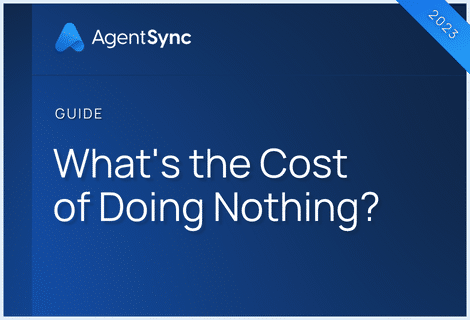

As states march toward appointment standardization, Texas’s recent legislative revision to end the sub-agent designation seemed like small potatoes. Which is ironic, because is anything in Texas ever really small?
Aside from “Bigger in Texas” humor, it’s important not to understate the real changes for carriers and MGAs or MGUs that have a duty to make appointments with the Texas Department of Insurance (TDI).
Prior use of subagent designation
Before the 2021 changes to the Texas insurance statutes, it was common practice for insurance carriers (and MGAs or MGUs that have the duty to appoint) to avoid appointing all agents downstream. They would appoint an agent or agency, and then the agents downstream of the appointed entity would be designated as “subagents.”
“The subagent designation was not a license status. It just indicated a relationship between an agency or agent to another agent,” said Ben Gonzalez, a spokesperson for TDI. “The intent of the statute change was to ensure that all agents representing an insurer are directly appointed by that insurer.”
So, for carriers that may have appointed only one agent or agency that then partnered with 50 subagents, the idea of appointing all downstream agents could be a tiny bit daunting. While the statute change took effect in September, many carriers may still be struggling to ensure their roster of downstream agents is accurate.
Texas insurance subagent change
Moving forward, any agent who sells on behalf of a carrier will need an appointment with that carrier, something the TDI hopes was made abundantly clear in their communications.
“All agents should now be directly appointed by a carrier,” said Gonzalez. “The subagent designation no longer exists. All previous subagent relationships have been inactivated. TDI has provided several mass communications, including a recorded webinar available on the TDI website, in an attempt to ensure compliance.”
The subagent designation wasn’t the only change to the Texas insurance statutes. Legislation also affects some of the other license classes and registrations, with these changes spelled out in the TDI bulletin issued in July. We’ve done a little coverage of this elsewhere, as well.
A sidebar on Texas insurance broker appointments
Because one of the affected licenses is that of “life and health counselor,” we here at the AgentSync blog wondered what TDI’s stance is on appointments for insurance brokers. As we’ve covered elsewhere on the blog, what we call insurance brokers might go by a variety of monikers across the states, but the gist is that they work on behalf of the consumer to connect with an insurance policy in that client’s best interest. And different states have very wide interpretations of how to handle this role, from special licenses and designations to prohibitions or requirements for appointments. (Seriously, check out our linked blog on this one if you’re not familiar – the different approaches to broker appointments are a wild ride (OK, well, wild for insurance).)
Because of the changes regarding life and health counselors, we asked about producers who work on behalf of the client in a broker or counselor capacity. We came away thinking Texas may be joining states like Kansas, which require all producers to be appointed, regardless of their role, after Gonzalez replied: “If an agent is soliciting products for a carrier, an appointment is required with that carrier.”
This may be the perfect point to pause and remind readers this blog isn’t legal advice, and you’re responsible for doing your own due diligence to be in compliance with all the relevant requirements of your various jurisdictions and regulators.
Softening the blow of appointing all insurance agents in Texas
There are several factors that might mitigate the pain of sudden appointment requirements (we hope).
1. TDI communications:
Gonzalez pointed to the commissioner’s communications, from bulletins to the aforementioned webinar, which are all intended to keep insurance industry stakeholders abreast of changes.
“TDI regularly posts Commissioner bulletins to notify the public of industry changes,” said Gonzalez. “The most recent licensing bulletin can be found at https://www.tdi.texas.gov/bulletins/2021/B-0019-21.html.”
Forewarned on regulatory shifts is forearmed, amirite?
2. Just-In-Time appointments
Texas is one of the states that uses Just-In-Time (JIT) appointments, a regulatory mechanism that allows carriers to hold off on officially making an appointment (and paying the associated fee) until an agent is actively writing business.
In Texas, the JIT provision states that appointments must be submitted within 30 days of the appointment-effective date, and the carrier determines the appointment-effective date by listing it on the state appointment form.
For carriers reluctant to appoint agents who haven’t written business, having the capacity to take advantage of JIT appointments could help.
3. Texas’s perpetual insurance carrier appointments
While many states require carriers to purge with terminations and pay fees for appointment renewals every year or biennially, Texas doesn’t have a renewal date. Texas appointments are considered “perpetual,” meaning once a carrier has appointed an agent, the carrier doesn’t have to revisit the appointment unless they’re looking to terminate the agent.
4. Low fees
As of the end of 2021, the fee to make a carrier appointment in Texas is $10 for all agents and agencies, whether they are residents or nonresidents of Texas.
In comparison to states which charge $60 (Vermont) or which charge up to $75 as retaliatory nonresident fees on an annual basis, $10 for a perpetual appointment – while costly when repeated across hundreds of agents – is still on the shallow end of the appointment fee pool.
5. AgentSync Manage
By integrating with your other tools, AgentSync Manage could help you capitalize on JIT appointments. Or perhaps you just want to make appointments and move forward, which Manage can do with a few mouse clicks. Regardless, our aim is to make legislative changes like this – which happen in different states every month – less stressful and frustrating.
Texas’s insistence on appointing all downstream agents is already in effect. See what Manage can do to help you align compliance with growth.

